 Petzlover
Petzlover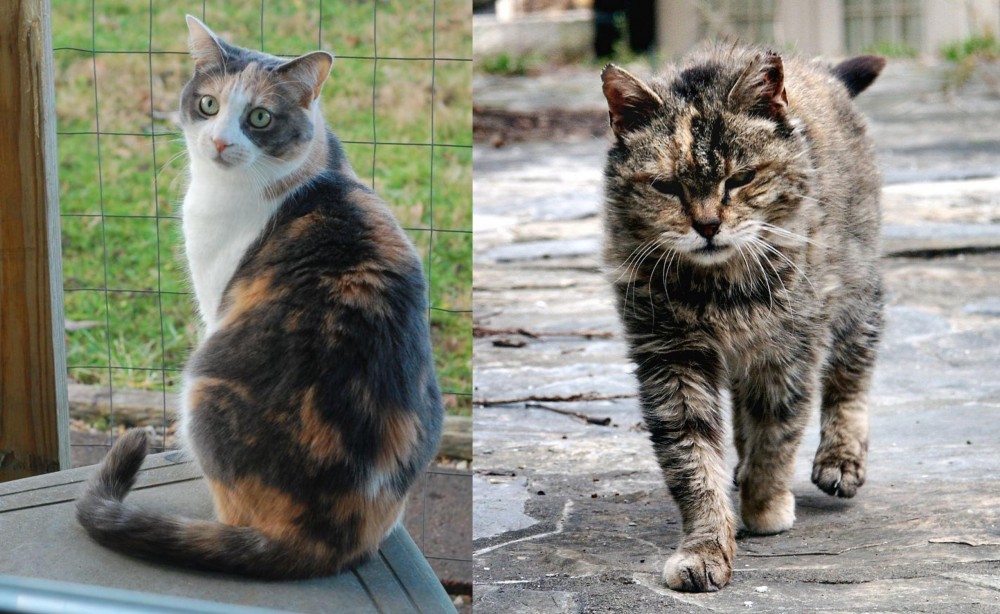 Dilute Calico is originated from Egypt but Farm Cat is originated from United States. Both Dilute Calico and Farm Cat are having almost same weight. Both Dilute Calico and Farm Cat has same life span. Both Dilute Calico and Farm Cat has same litter size. Both Dilute Calico and Farm Cat requires Moderate Maintenance.
Dilute Calico is originated from Egypt but Farm Cat is originated from United States. Both Dilute Calico and Farm Cat are having almost same weight. Both Dilute Calico and Farm Cat has same life span. Both Dilute Calico and Farm Cat has same litter size. Both Dilute Calico and Farm Cat requires Moderate Maintenance.
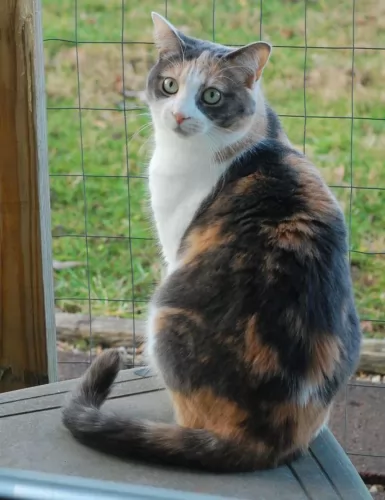 The Calico isn’t a breed of cat but is describing a color and pattern of the cat. Many breeds of cats can be calico, and ‘Dilute Calico’ simply means that the color of the cat is less intense.
The Calico isn’t a breed of cat but is describing a color and pattern of the cat. Many breeds of cats can be calico, and ‘Dilute Calico’ simply means that the color of the cat is less intense.
An example of this would be cream being the dilute shade of red, almost like strawberry blonde. People interested in the origins of the cat trace its history back to the trade routes in Northern Africa and Europe, and more specifically to the port cities along the Mediterranean Sea.
A Calico cat is described as having 3 colors - white, black, and red and Dilute Calico cats have ‘toned down’ shades of these 3 colors.
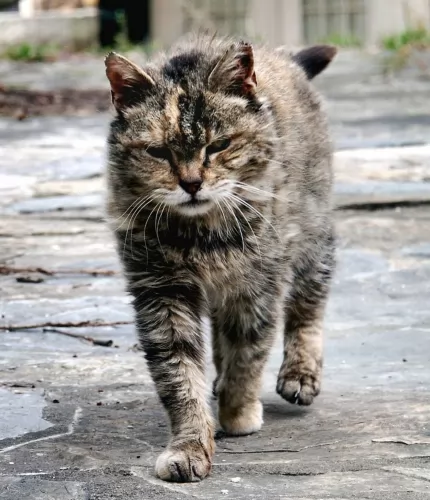 Known also as the Barn Cat, this domestic cat is of a mixed breed. The very name ‘farm cat’ is referring to a general kind of cat that lives in an almost wild state on farms and agricultural properties.
Known also as the Barn Cat, this domestic cat is of a mixed breed. The very name ‘farm cat’ is referring to a general kind of cat that lives in an almost wild state on farms and agricultural properties.
Possibly, their role in keeping rodents at bay was how they came about – domesticated to keep rodents away from grain crops.
When you do research you find that there is archeological evidence to suggests that these farm cats have been around since about 7500 BC. Most barn cats fall under the domestic shorthair or domestic longhair categories.
These cats live in a variety of conditions and some of them get their food solely from the rodents they catch. Others are tame with access to supplemental cat food as well as veterinary care.
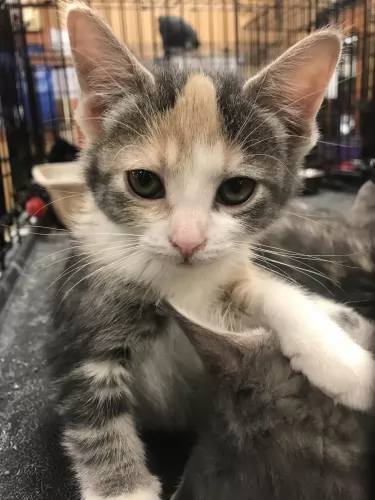 These are beautiful cats that can essentially have any size and shape and can weigh between 3 and 6kg. Their coat too can be in different colors and patterns and these don’t have any effect on the cat’s persoality.
These are beautiful cats that can essentially have any size and shape and can weigh between 3 and 6kg. Their coat too can be in different colors and patterns and these don’t have any effect on the cat’s persoality.
Your Dilute Calico can have a short- or long-haired coat. Also, because the dilute calico coloring isn’t linked to any particular cat breed, these cats can be any size or shape really.
They are also nearly always female. Remember that while genes do have an effect on how your Dilute Calico looks and behaves, socialization plays a big part, and where possible, to get your cat from a reputable breeder.
Because calico cats are a coat-color and not a breed, you can find long hair dilute calico cats. The personality of the Dilute Calico is described as colorful as well as they’re fun-loving, independent, spunky cats that are sweet and loving too.
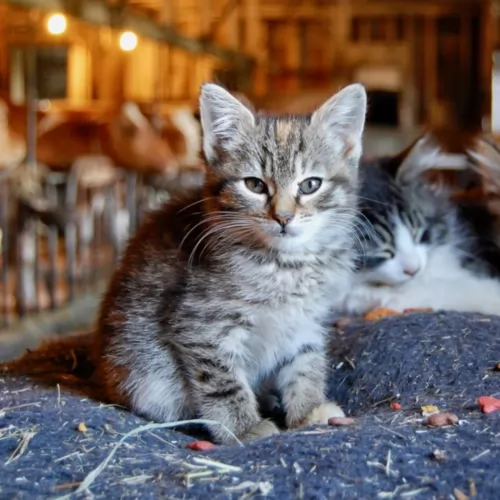 Farms cats are also members of domestic cats but it’s just that they are usually not socialized and they run away from people.
Farms cats are also members of domestic cats but it’s just that they are usually not socialized and they run away from people.
Farm cats have different histories and there is really no one-size-fits-all description of them.
They can weigh anything from 2 to 8kg. They can live to be anything between 10 and 20 years of age. Some of them are large, some small, some are solid colored while others are bi-colored and patterned. Their coats differ too and you can find short- and long-haired varieties among your farm cats
Their eyes and ears will also be in any shades and sizes and these cats are usually not spayed or neutered and can produce kittens that nobody is sure how they’ll turn out.
If you were to stumble across a farm cat born of unknown parents, there is no knowing what the small feline will behave like. Socialization and lifestyle play a big role in determining how a kitten will turn out but farm cats left to their own devices could be quiet, aggressive, loving, naughty, reticent, reserved, playful, lazy, shy or nervous.
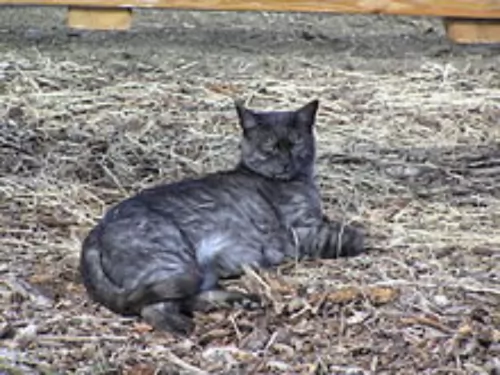 Farm cats are such wonderful animals – they just need a good chance in life like other domestic cats.
Farm cats are such wonderful animals – they just need a good chance in life like other domestic cats.
Many of them have had a hard life and it can be marvelous to open your home and heart to one or two of them and see the pleasure they bring.
They’re full of character and if you provide them with good food and a warm bed and promise to love them, you’ll no doubt be starting a solid and meaningful friendship that can enhance your life.
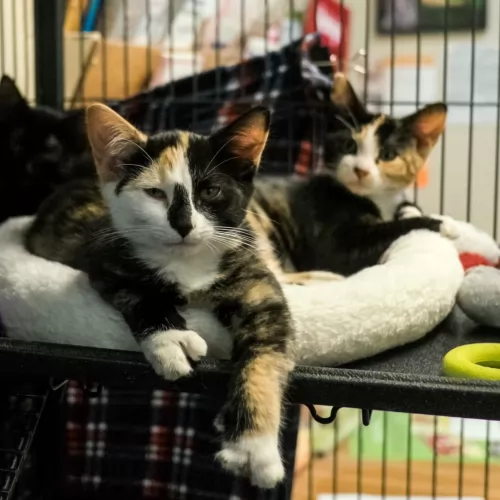 As already mentioned, the Dilute Calico isn't a specific breed but rather a color. The calico can be any breed. The average lifespan of any cat is 12-16 years. The males are far rarer than the females and they live shorter lives.
As already mentioned, the Dilute Calico isn't a specific breed but rather a color. The calico can be any breed. The average lifespan of any cat is 12-16 years. The males are far rarer than the females and they live shorter lives.
Cancer is a terrible disease in cats and dogs and it is where cells grow uncontrollably, spreading to all areas of the body. For any sign of illness in your Dilute Calico, get him to the vet.
Make sure your cat is vaccinated against the deadly cat diseases there are such as Feline Immunodeficiency Virus (FIV).
Both males and females can develop lower urinary inflammation, which is also called Feline Lower Urinary Tract Disease (FLUTD). You’ll notice your pet straining to urinate. It’s time to get your pets to the vet with this terrible illness.
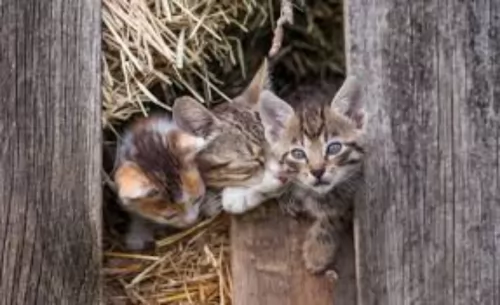 Farm cats left to fend for themselves can suffer from a host of illnesses. Eye infections are one. The cause of these eye infections is usually a virus, of which herpes, chlamydia, and Calicivirus are the most common.
Farm cats left to fend for themselves can suffer from a host of illnesses. Eye infections are one. The cause of these eye infections is usually a virus, of which herpes, chlamydia, and Calicivirus are the most common.
Your vet will certainly prescribe you some antibiotics for your kitten to help against secondary infections.
Check your farm kitten over as he is likely to have a nose full of snot as well and may even be sneezing. Take the kitten to the vet who can give him a good once-over and put him on the road to recovery.
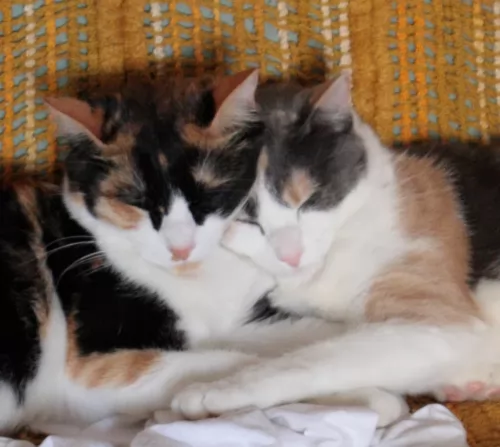 Prepare for your cat – have food dish, water bowl, litter box, cat food, brush, climbing tree, scratching post, cat toys, and cat bed to welcome your pet.
Prepare for your cat – have food dish, water bowl, litter box, cat food, brush, climbing tree, scratching post, cat toys, and cat bed to welcome your pet.
When it comes to commercially manufactured cat food, there are many excellent ones on the market and you can choose from dry and wet cat food. If in any doubt about what is best for your cat, speak to your vet. Your cat is a carnivore and will need food that pays special attention to meat. A kitten will require 4 small bowls of food a day and by one year of age your cat can be receiving 2 smaller meals a day. Provide cool, fresh water around the clock..
Brush your Dilute Calico gently once a week. Some of the longer-haired Dilute Calicos will require brushing twice a week. At this grooming time, check that the eyes are nice and clear, free of discharge, check that the inside of the ears are free of wax and dirt build-up and check inside the mouth that there aren’t any troublesome teeth.
Whether your cat is an indoor cat or he goes outside occasionally, check for ticks and fleas and get him to the vet to check for internal parasites. Your cat will need to be dewormed and to receive all his cat vaccines to avoid some of the deadly cat diseases there are.
If your cat does go outside, make sure he has a cat collar and an ID tag.
Keep the litter box hygienically clean as cats won’t use a messy litter box. You can buy small scoops and rakes from the pet shop and rake up his droppings throughout the day.
Always have your cat neutered or spayed as there are way too many unwanted kittens in the world. Having them ‘fixed’ reduces lots of illnesses such as urinary inflammation.
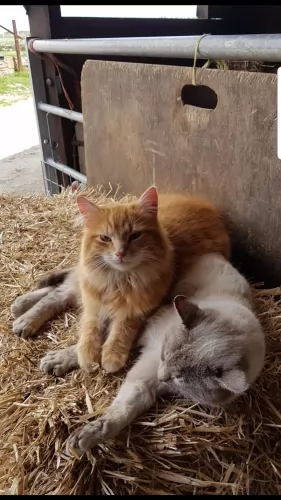 Barn cats or farm cats are not likely to have been neutered or spayed and they are just adding to the overpopulation of farm cats that can become feral cats.
Barn cats or farm cats are not likely to have been neutered or spayed and they are just adding to the overpopulation of farm cats that can become feral cats.
The average fertile cat can produce three litters every year, and with as many as 6 kittens in a litter, you can imagine how a small colony of cats can get out of control.
Sometimes cat rescue programs do a steri-drive and spay and neuter cats like this to curb the numbers. Of course, spaying and neutering can prevent many diseases as well.
If you have farm cats that have been spayed or neutered, provide them with good food and water. You can put out wet, canned cat food or dry kibble – they’ll be so pleased as most times these cats don’t even know where their next meal will come from.
You see them drinking out of puddles of water. Unfortunately, these pools are often filled with contaminants and this can also make the cats sick.
Every cat just wants a soft, warm place to sleep, and if you can, provide some warm dry hay for these farm cats. Even a cardboard box can be a haven for a cat that has never known a bed.
If you have managed to catch a farm cat kitten and you want to offer it a home, make sure to start off with veterinary care and vaccines.